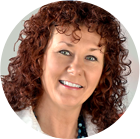
Interested in starting a company? Then Startup Night, now in its second year, is for you; it’s a monthly panel discussion/networking event hosted by We Are Titans, a web development and design studio and organizer of the build-a-business weekend-long competition, Start Norfolk.

Photo credit: Paul Chin, Jr., Photographer and more photos at: Paul Chin, Jr., on Flickr
Lilly’s company, xTuple, created a full-featured, fully-integrated accounting, enterprise resource planning (ERP) and corporate relationship management (CRM) suite of open source management software. It is simple enough for startup small business accounting, scalable enough for Global 1000 companies. xTuple’s mission is to help companies of all sizes to use powerful business management software at an affordable cost to improve operations innovate profitably and grow jobs.
DiNardo’s work at Wall, Einhorn & Chernitzer is focused on startups and closely held businesses. His niche is exit planning, i.e., deciding when the time is right to sell your business.
DiNardo and Lilly offered their expertise in an informal setting with 30 entrepreneurs:
- Companies need cash to grow, but cash in the bank doesn’t mean you have strong cash flow.
- When is enough cash, enough? You never have enough cash if you’re growing.
- Most successful business owners worry about their employees a month from now and their growth a year from now.
- When thinking about financing, plan out projected future cash flow and use management software to help you.
- Don’t bootstrap, i.e., starting a business without external help or capital, without a plan, or you’ll be bootstrapping forever. (But eating ramen noodles and drinking tap water for a few months is not unrealistic.)
- Never co-mingle funds — personal money and company money cannot mix. Have a personal credit card and a separate company credit card.
- Your best salesperson has a spouse, three kids and a mortgage.
- Remember, everything is negotiable, such as rent deferral. The more desperate you are, the more everything is negotiable.
- Partner with people of like mind who want to move in the same direction.
- A written operating agreement among partners and funders — even if friends and family — is a necessity.
- Offering employee stock ownership is a good way to incentivize without immediate tax consequences.
- Personal credit cards are a part of bootstrapping, but maxing them out is not a plan. Having an executable plan to get out of credit card debt is required.
- For every successful entrepreneur, there are eight or nine failures.
- Personal bankruptcy is an “epic fail” — reach out to your bank for a debt management program first.
- You CPA can’t care more about you than you care about yourself.
- Pro bono works only for charitable organizations.
- Two words: Payroll taxes. They are a priority as a small business owner. Your business will be pad-locked if you don’t pay them.
- Not making payroll is not an option. Other things can be deferred, if necessary, including professional services, such as your CPA. Talk to them.
- Focus on your core competency. Outsource the rest. Payroll, for example, can be a nightmare to handle in-house.
- Despite the protection of a Limited Liability Corporation (LLC), the owner and financial officers are still personally liable.
- Payroll taxes penalties can be as much as 100%. Whip out the credit cards, if that’s what it takes, and meet payroll.
- Making payroll is not just a legal concern; keep employees — whom have bought into your vision — happy.
- Caution — raising money for a venture will raise the eyebrows of the federal government.
- To meet financial obligations, you can sell your Accounts Receivable (A/R) to a factoring company for 14-18% interest if you can’t wait to collect.
- It’s more difficult than ever to get bank financing without a personal guarantee. Banks want an operating history.
- You will never obtain bank financing for a startup. Never.
- The bigger the bank, the fewer options an entrepreneur has. Banks want low risk.
- You can start a company with no cash. Get your clients before you start your business.
- It’s more difficult to get money from someone just looking for return on investment (ROI) versus someone who knows your industry and wants to be involved in your company’s success. (ABC’s Shark Tank is a good example of this relationship value.)
- When raising money, investors want to know exactly how you’ll use the money. Your living expenses aren’t anything investors plan to cover.
- Investors want to know you’ve got “skin in the game” and are assuming a preponderance of the risk.
- There is no magic formula: the owner is always the last person paid. But pay yourself before you go to the bank.
- It is one thing to be profitable. You could still have no cash on hand if you’re investing back into the business. Cash balance is not an indicator of business success.
- Entrepreneurs have a blind spot: valuing their own time. Every hour spent on something not directly building the business is an hour lost.
"Entering Startup" photo credit: Mike Dierken on Flickr
